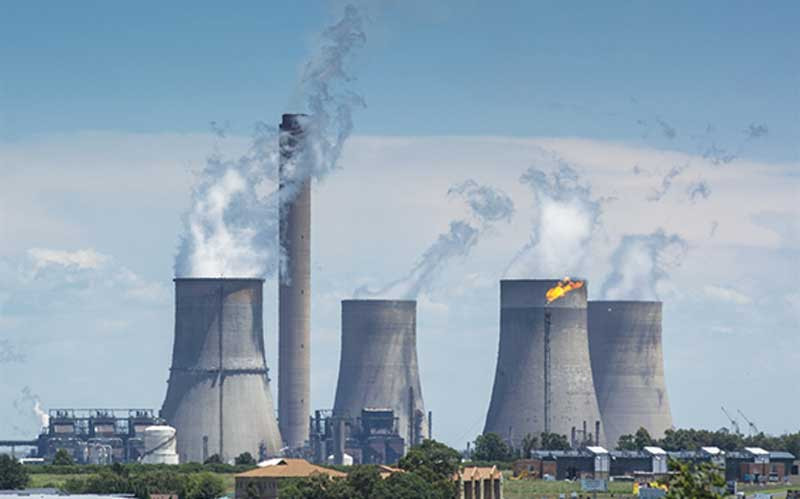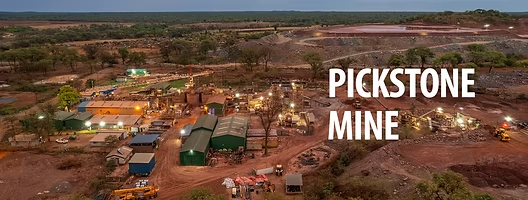
AFRICAN journalists reporting climate change issues and the transition to renewable energy must first comprehend their continent and its goals to be able to give a balanced account of issues in these areas.
Despite concerns that foreign nations are pressuring African countries to stop exploiting their natural energy resources, the fact remains that many are struggling to provide reliable electricity to their people.
Verner Ayukegba, senior vice-president at the African Energy Chamber, an energy advocacy group based in South Africa, said journalists should realise that handouts (in terms of aid) will never lead to the development of nations.
Giving the example of South Africa, he said that the energy situation in many African countries hinders their economic advancement.
“South Africa has a large coal resource but also ranks among the continent's most energy-insecure nations. To maintain access to and dependability of power, the country must update its coal-fired power facilities,” he said.
Ayukegba said that journalists telling climate change stories in Africa should also be able to distinguish the goals set by foreigners for them to comprehend issues in the climate change space.
He illustrated the energy situation in African countries by comparing how large economies like the United States and other European countries built their middle classes.
“So, what took place? Coal discovery. With the introduction of coal into the picture, people began to have cheap, accessible and affordable energy. This led to an explosion in industries throughout England, Europe and later American factories began to generate enormous employment opportunities and lift large segments of the population out of poverty. Thus, our analysis and assertion are that without affordable and readily available power, Africa cannot advance,” he noted.
- Open letter to President Mnangagwa
- Feature: ‘It’s worse right now than under Mugabe’: Sikhala pays the price of opposition in solitary cell
- Masvingo turns down fire tender deal
- Human-wildlife conflict drive African wild dogs to extinction
Keep Reading
Aimable Twahirwa, a senior climate change journalist from Rwanda, said that most African journalists still do not grasp the seriousness of climate change.
They do not take it as something with scientific implications and when it comes to covering stories, they mostly focus on press releases and interviewing experts without telling their stories in ways that resonate with their audiences as far as the climate change issue is concerned, he said.
According to Twahirwa, some coverage misses crucial aspects of the story by failing to reflect local conditions, thus failing to engage their audiences.
“I will say that some journalists don't focus necessarily on climate risk formulation in their reporting which pushes them to rely on Western framing,” he said.
To improve climate change reporting in African newsrooms, Twahirwa added, it is important to adopt solution reporting by telling Africa’s climate story through an African lens while building on experiences and voices from communities affected by the climate crisis.
While community voices have often been left out of climate change conversations, the same could happen with the transition to cleaner energy especially when it comes to resources like natural gas which is one of the continent's main energy sources, he said.
Ayukegba said that to avoid providing African countries with inaccurate information, it is imperative that journalists educate themselves on the topic of gas availability on the continent rather than relying solely on the opinions of industrialised economies.
He said that even though the Paris Agreement stipulates that countries must cut emissions by a specific amount and by a given date, governments like the US insisted they would not sign it.
Nevertheless, they eventually achieved their targets. Why?
Gas appeared. In addition to using significant amounts of gas to replace coal plants, the US threw itself into gas exploration and drilling.
Knowing that gas is a cleaner fuel and can cut emissions over coal is crucial information for everyone, not only climate change journalists. As a result, looking at the amount of gas that the continent has, it is clear that gas would offer the benefits of affordable power and zero emissions, Ayukegba said.
Ayukegba acknowledged that Africa's incapacity to finance projects internally is one of the biggest contributors to the lack of energy access.
He said that to fund green projects, including hydro-electric projects that have been approved or commissioned for a long time, African countries have to typically look outside of the African continent, forgetting the pools of financing within our own borders.
“The unfortunate reality is that we are very inefficient at mobilising these funds. In my experience, the development of projects like hydroelectric power has been impeded by the fact that the continent is home to 54 countries, which translates to 54 borders and 54 investment restrictions,” he said.
“Even though Mexico and Canada have very different cultures from the US, look at how the US has integrated with them to create a trade union. If we work hard to implement the African Continental Free Trade Area, we might be able to successfully develop large-scale hydroelectric projects like the Bui Hydro-Solar Hybrid, which has the potential to power, not only West Africa, but the entire continent of Africa,” he added.
Ayukegba noted that limiting visas for Africans to enter other countries reduces cross-border investment which hinders accessing the pool of funding within the continent.










